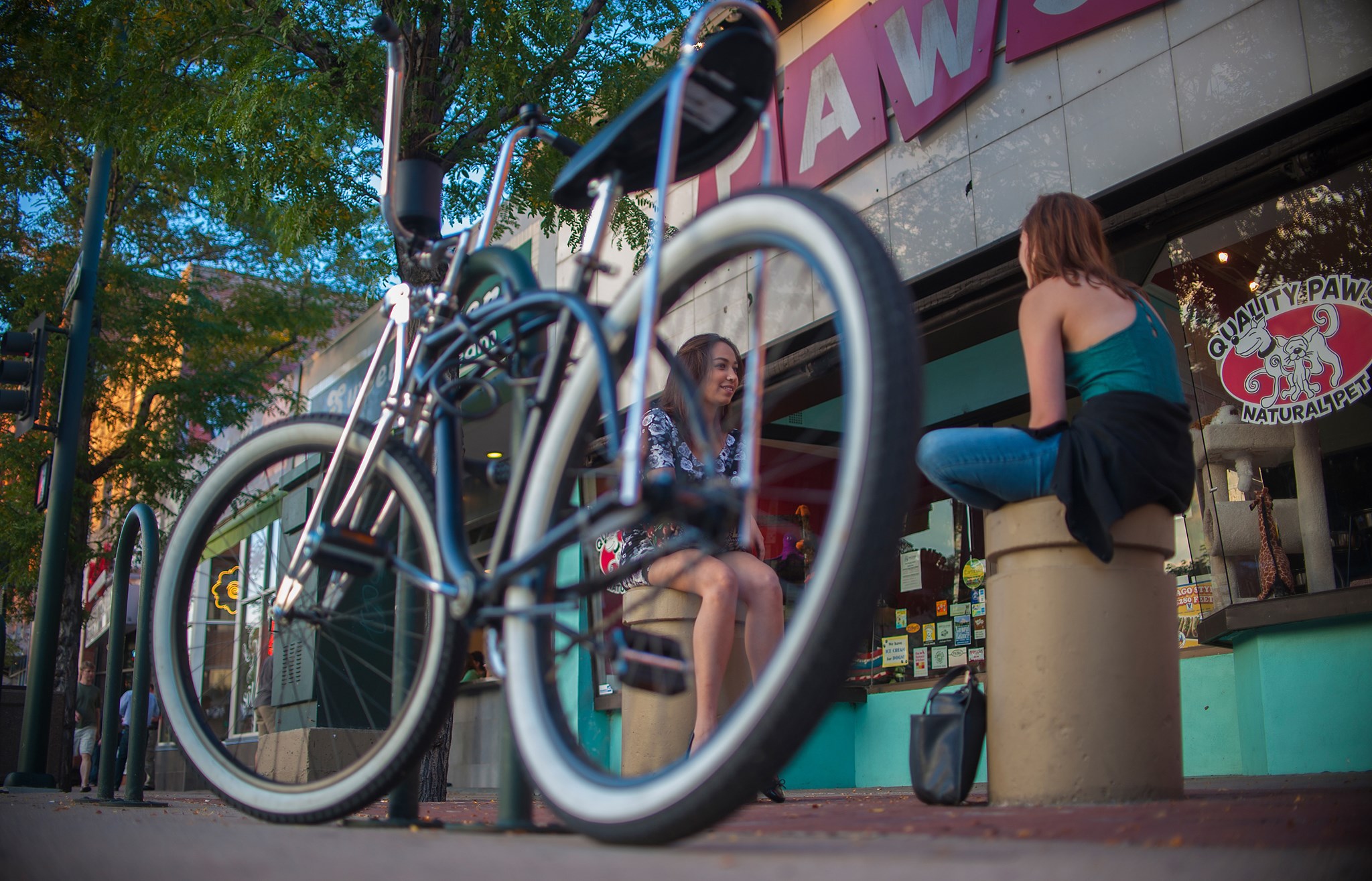Sustainability is a cornerstone issue for Denver and its citizens. As we look ahead at a future where climate change will impact every one of us, we want to give a platform to the people and groups spearheading sustainability efforts in the Mile High City. In this sustainability series, we will discuss the problems, explore the solutions, track the efforts and explain how to develop better sustainable practices in daily life. Go here for our first article, here for our second and here for our third.
Learning about sustainable city-wide initiatives can frustrate those who want to see action at a faster pace. The truth is that the city operates incrementally, but you as an individual don’t have to. Improving sustainability in Denver can start with you, as corny as it sounds. Your actions today will have an impact on the city’s actions tomorrow.
Here are some tips and ideas about how to make your lifestyle more sustainable.
Get Around Without a Car
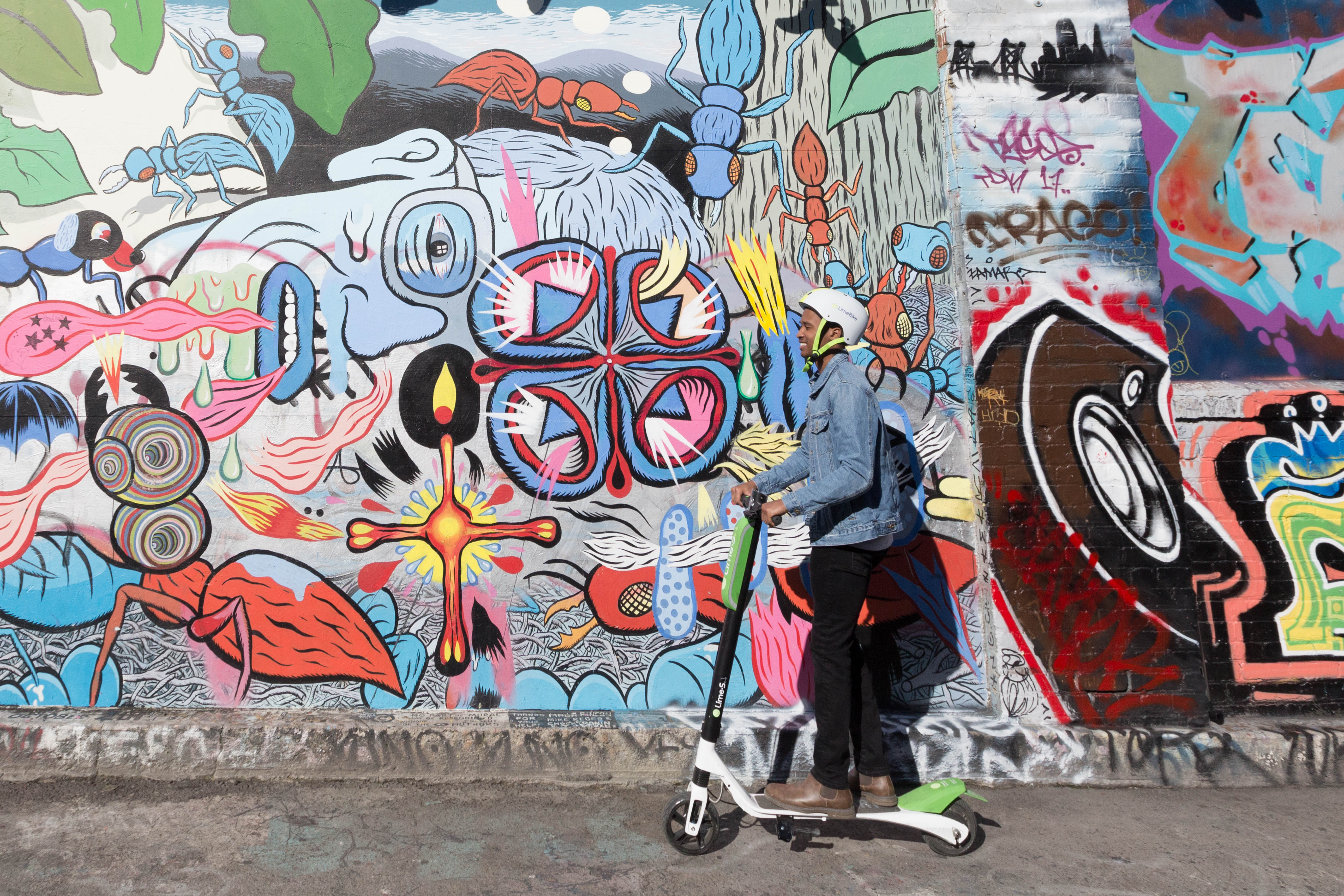
When more than half of the city’s emissions come from transportation with internal combustion engines, one of the biggest individual actions a person can take to make their life more sustainable is using public or multi-modal transportation options instead. If that isn’t possible, the next step would be avoiding single-occupancy vehicle trips (driving in your car alone) as much as possible.
In order to commit to something like this, it’s easier if you live in an area with good infrastructure for multi-modal transport — safe bike lanes, reliable bus lines, ADA sidewalks. Unfortunately, some Denver neighborhoods lack enough of those assets to make this option available for everyone in the city.
Many residents may still feel unsafe taking public transportation options amidst the pandemic, although it’s important to understand the long-term consequences of avoiding it. Without riders, buses and light rail lines lose their demand, which in turn lowers their budgets, which in turn may eventually lead to their removal from the system.
Another option that is gaining more traction in Denver is micro-mobility — small devices that can travel with speed, like e-scooters and e-bikes. Denver City Council is currently working through a possible licensing agreement with Lyft and Lime, which among other things would add more micro-mobility to neighborhoods with low vehicle ownership and high transit ridership.
One long-term action is to vote for and support funding options for sustainable multi-modal networks. According to Naomi Amaha of the Denver Streets Partnership, “Denver has a great vision and plans for building out complete, safe, multimodal networks, but at current funding levels, it would take more than 100 years to fulfill this vision.”
Recycle Beyond the Bin
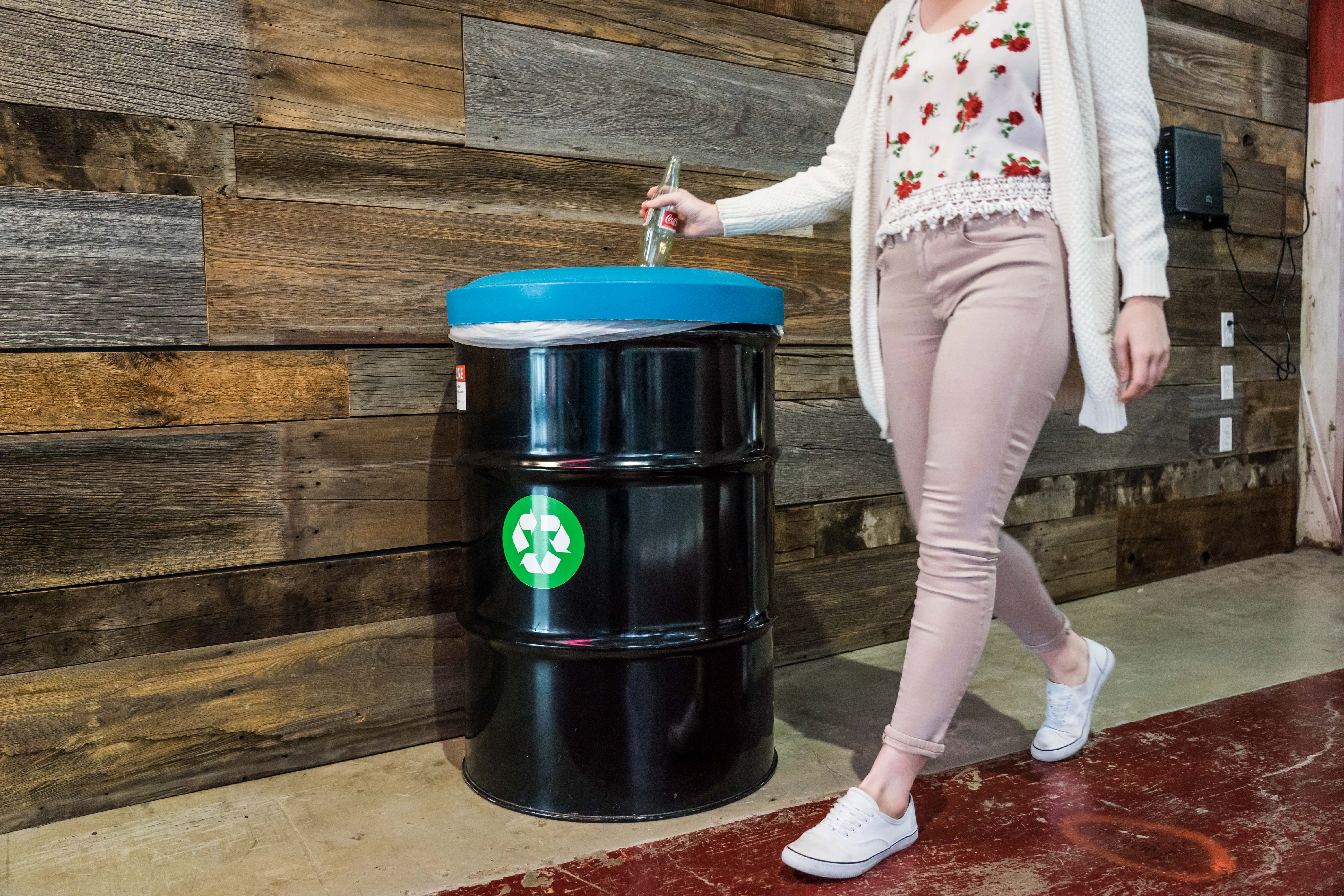
Denver is not known for its ability to divert waste from the landfill. The city’s regulations are lax at best, and unfortunately, the city does not even collect waste from all residents or buildings (third-party contractors are responsible for residences with more than seven units and commercial buildings). However, despite the downsides of Denver’s waste diversion processes, one of the biggest challenges at this time is educating people on the merits of reducing trash and increasing recycling and composting in their daily lives.
READ: How Denver Has and Hasn’t Progressed on Sustainability Goals in the Past Decade
For decades, household waste has been categorized mostly as “trash” — a fabricated concept that removes accountability from the consumer by not requiring them to consider the impact of their purchases. Cities, like Denver, have incentivized households to throw out however much they want by offering endless and free trash collection. Although that may change in the coming years if Denver rolls out a Pay-As-You-Throw (PAYT) trash system — charging residents based on the weight of their trash and offering free recycling and compost — the best thing to do until then is to learn how to recycle or repurpose as much waste in your house as possible.
This may sound intimidating, but there are a lot of resources out there to help.
- Look it up on an app. The city offers a pretty useful app that allows you to search for the name of a material and be directed to where to recycle it. For example, you can search “televisions” and the app provides a map for acceptable drop-off locations, as well as information about electronics waste and why it should not be thrown into a landfill.
- Use your recycling bin properly. If you are one of the customers with waste managed by the city, then you are also provided with a purple recycling cart along with your trash bin. This recycle cart isn’t a second trash can. In order to use it correctly, you should ensure that all items in it are accepted by the city, wash out and empty all containers (jars, bottles, pie tins, take-out dishes, etc) and then directly dump the items into the cart rather than using a plastic garbage bag. It’s helpful to print out a list of accepted materials to put next to your recycling collection inside.
- Extend the life of your single-use products. A few examples are washing and drying plastic zip-loc bags; reusing glass bottles as leftover containers; buying refills for hand soaps and cleaning supplies in order to reuse the original pump or spray bottle; using cloth napkins instead of paper ones. These actions are sustainable and economical — American families spend hundreds of dollars each month on one-time-use cleaning supplies.
Pay For Compost
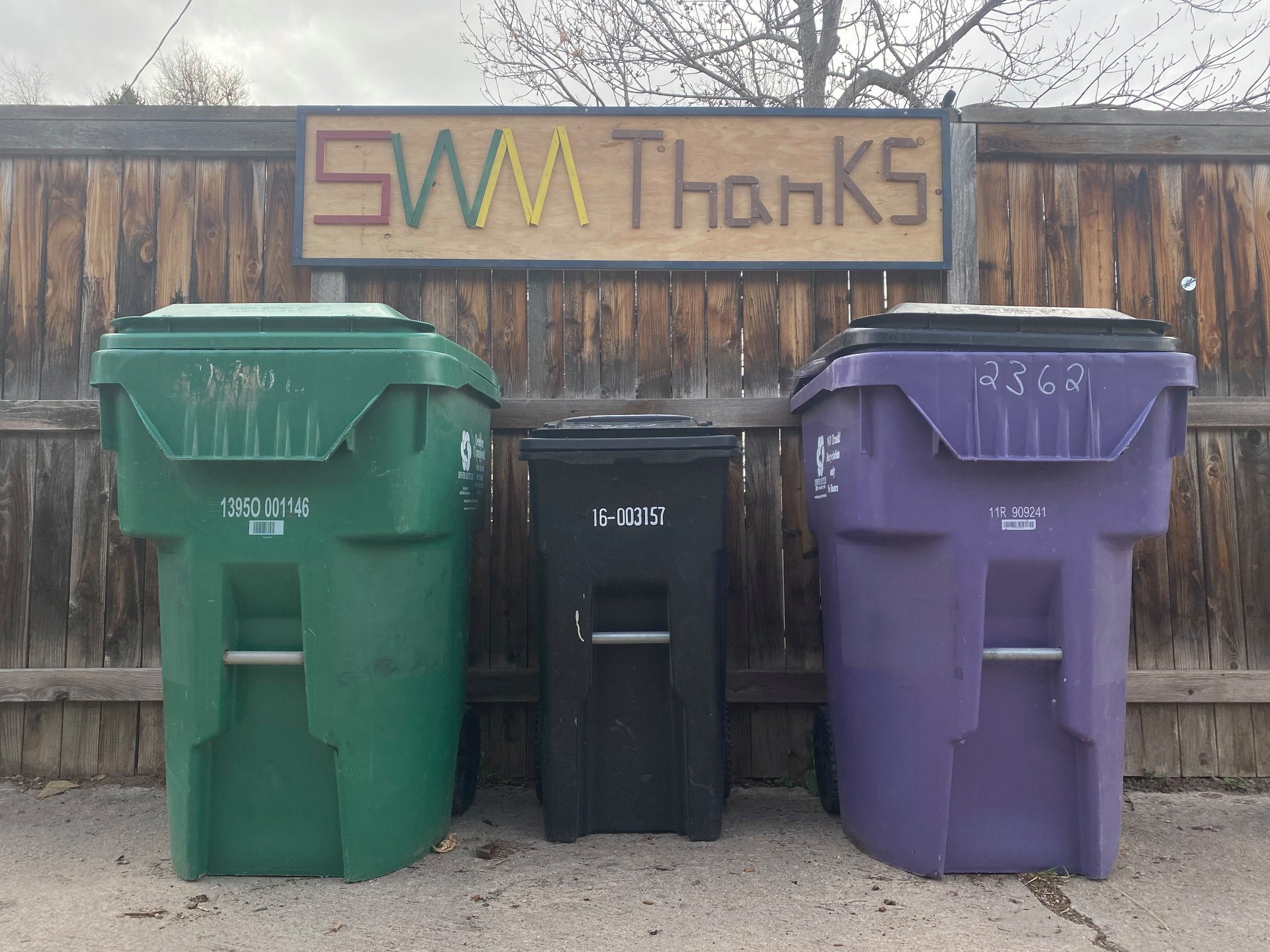
The other part of the waste diversion equation is compost. Unfortunately, every compost customer in the city (more than 27,000) currently pays a fee for compost collection — about $120 each year. However, this is a great way to help the city lay the groundwork for future mandatory compost collection if you can afford it.
Charlotte Pitt, the manager of resource management at the new Climate Action, Sustainability, & Resiliency office (CASR) explained that subscribing to the compost program is one of the easiest ways for individuals to help Denver’s waste diversion, aside from recycling properly. “The more people we can get signed up to participate, the better because that infrastructure is in place.”
But, just like with recycling, it’s important that composting in a collection bin follows a certain set of guidelines. “As you roll out composting, there are these small things you don’t think about. Making sure people don’t get what we call the ‘yuck’ factor is important,” Pitt said.
Since the compost bins accept food waste (including animal byproducts like bones and leftover meat) as well as yard debris, pet hair and non-recyclable paper (like greasy pizza boxes), it’s important that the carts are set out for pick-up every week and don’t sit in the elements for too long. Without individuals taking the time to fulfill these requirements for compost collection, the composting end-markets suffer, which only inhibits the progression of city-wide composting.
Community Solar Gardens
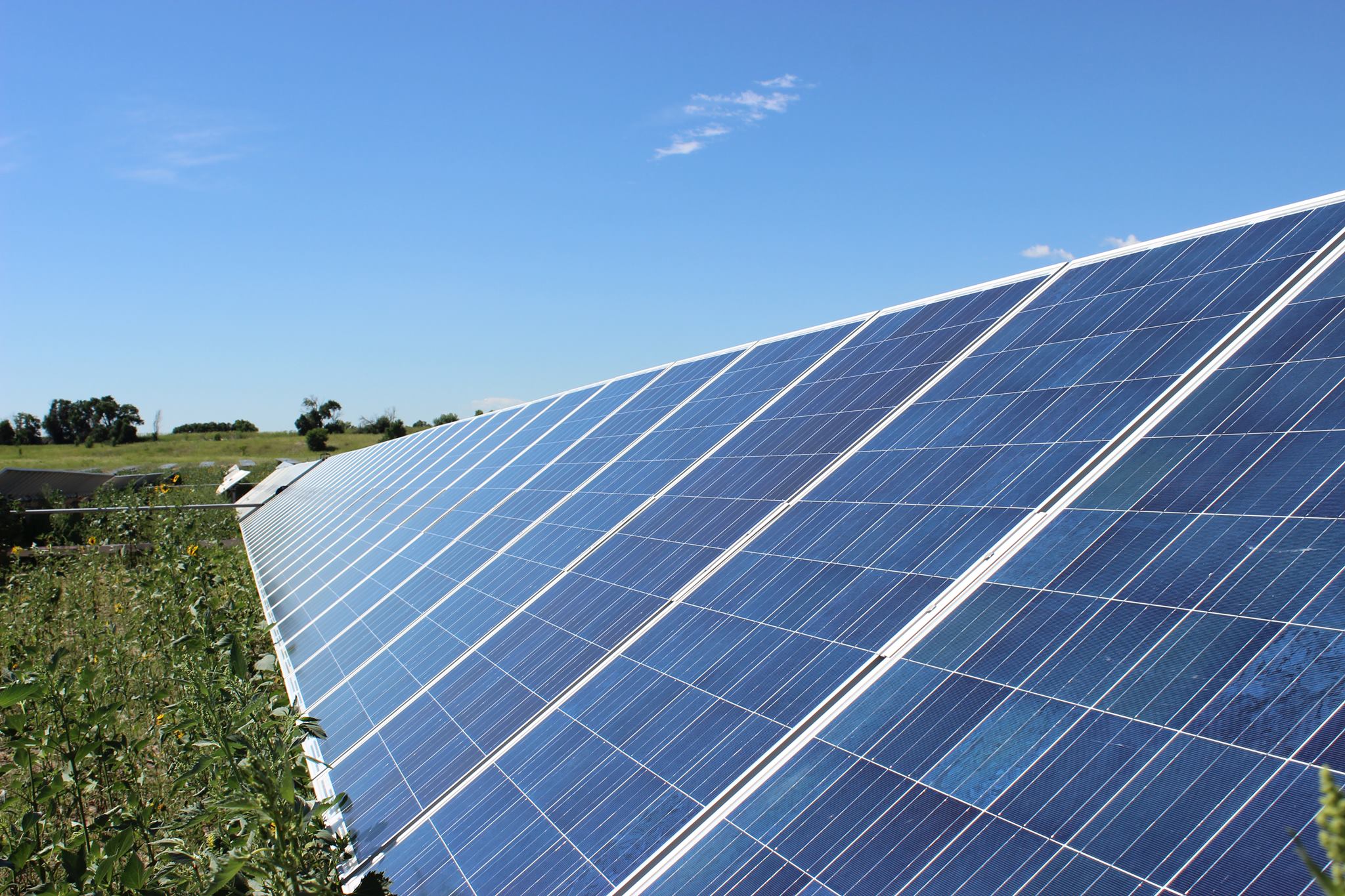
Energy usage is something that affects every household, whether you’re renting or owning. In Denver, solar panels are a remarkable alternative to relying on a fossil-fuel-oriented energy grid especially because of the abundant sun we receive. However, many residents in Denver don’t have the ability to install solar panels on their rooftops, whether that’s because they don’t own the building, the roof isn’t ideal for solar collection, or they cannot afford the investment, but there’s still a way to contribute to the solar economy and possibly save yourself some money too.
Community solar gardens offer energy credits through Xcel Energy’s Solar Rewards Community program for Colorado customers. This allows you to pay into a local solar garden (a place that houses solar panels for energy collection) and then credit your Xcel account with the energy that those co-owned panels produce. When production is higher than your household use, you’ll be reimbursed by Xcel, adding up to a few hundred dollars in savings annually.
Aside from the major benefits of not needing to install and maintain your own solar panels and saving money on energy bills, using community solar gardens also adds renewable energy to the Xcel Energy grid for everyone. In Colorado, 30% of the state’s total energy generation comes from wind and solar — a number that’s more than tripled in the last decade alone.
Denver Housing Authority led the nation with its creation of a community solar garden that it developed, owned and operates, leading to 20% energy savings to subscribers who live in DHA low-income housing.
The city has also been working on installing community solar gardens with a $1 million grant over parking lots, recreation centers, libraries and schools in order to provide electricity to the municipal facilities and neighboring low-income residents. “Hosting community solar gardens on municipal property is new in Colorado and holds significant promise,” said Jonathan Rogers, a renewable energy specialist in the CASR office. He explained that the city can offer lower-cost subscriptions to the solar gardens because the municipal sites are cheaper than privately-owned land and for-profit solar gardens.
Lower Your Impact At The Store
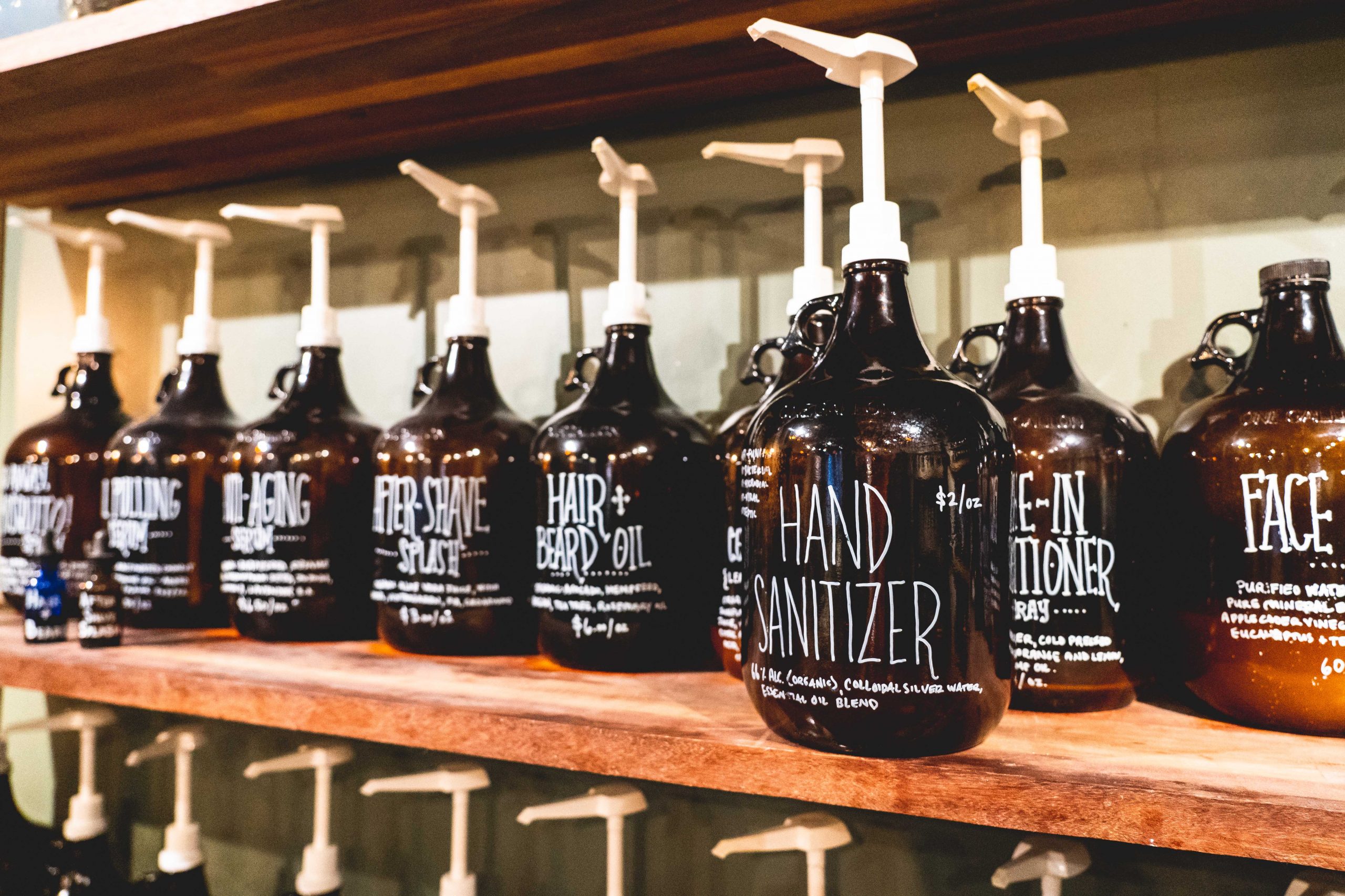
If you were to take inventory of all the single-use packaging that came into your home (and then left as trash or recycle), it would probably astonish you. As of 2018, more than 35 million tons of plastic was generated in the U.S, and more than 26 million tons of that was landfilled. The worst part of this plastic nightmare is that most of the time, it’s completely unnecessary. Thankfully, refill or zero-waste stores are becoming more prevalent in Denver and around the country, leading to more responsible shopping habits when it comes to packaging and single-use plastics.
Refill and zero-waste stores are simple operations — they provide wholesale containers of household goods like soaps, herbs, personal care products and customers bring in their reusable containers to refill, paying for the product by weight or bulk pricing. This action again improves the overall sustainability of the city by reducing waste while it also lowers your budget since you aren’t paying for packaging.
A list of refill or zero-waste stores in Denver:
Zero Market: two locations offer Aurora and west Denver an almost one-stop-shop for bulk items from household cleaners to tea and herbs to natural cosmetics and even on-tap kombucha.
Homefill at Modern Nomad: a natural bulk store with household cleaners, personal care, pet shampoos and lifestyle goods aimed at zero waste living and located in RiNo.
The Conscious Merchant: sells sustainable items for bathroom, kitchen and home as well as offering refills and consulting services and located in downtown Denver.
The Better World Company: offers refills by delivery of sustainable household and personal care products to Central Denver, Central Park and the Highlands.
JOY FILL: sells wholesale and sustainable household cleaners, personal care and beauty products in store in North Denver.
The Balanced Exchange: offers refills by delivery of personal care products to Denver and Aurora.
Vote For Sustainability
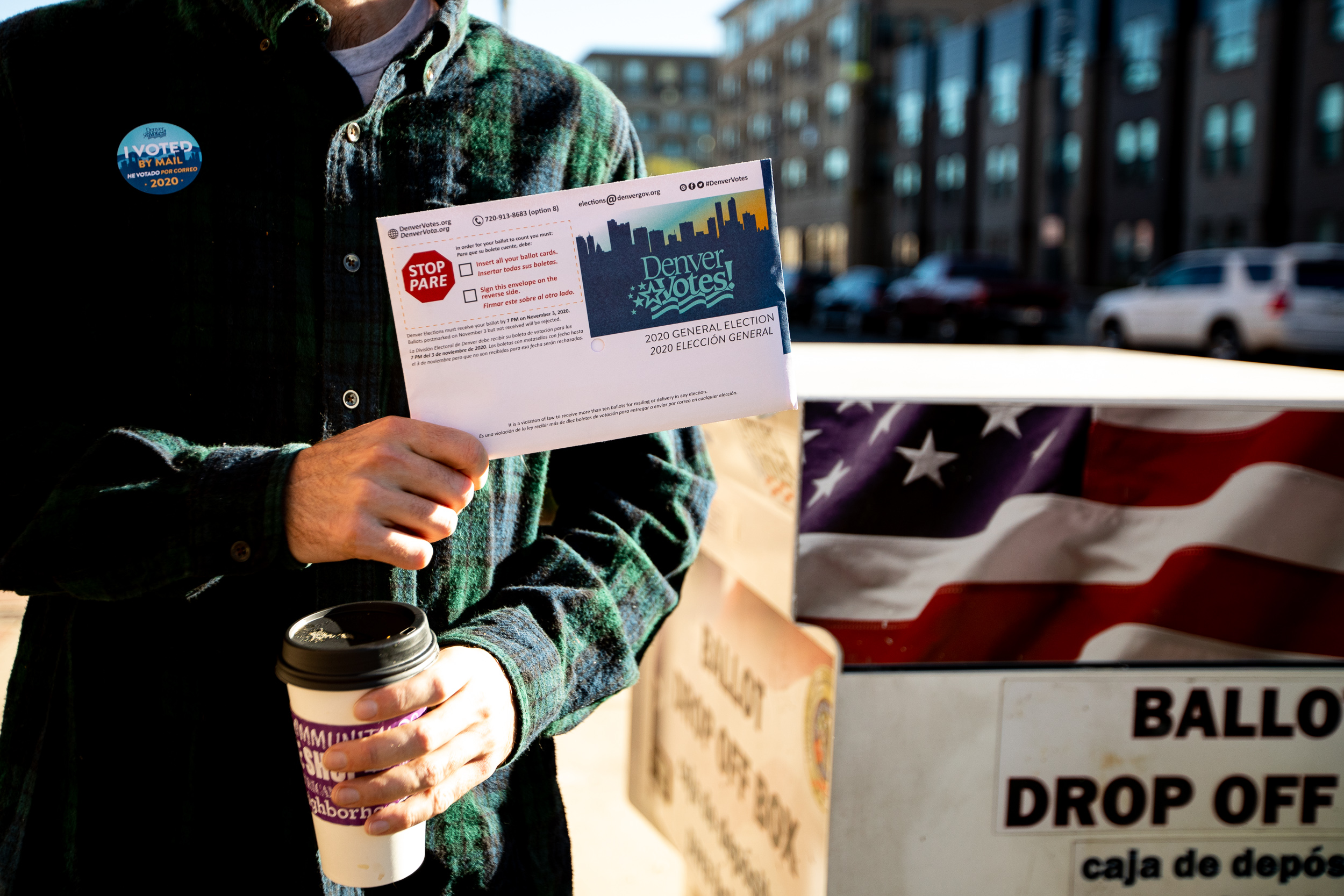
If you care about sustainability in the Mile High City, every election provides you a chance to vote for it. Whether it’s City Council, Mayor, Board of Education or ballot initiatives — there is always a chance to choose the candidate or proposal that considers sustainability a top priority.
A great example of this is city councilmember Jolon Clark, of District 7. During his time in City Council, he proactively started investigating the city’s sustainability efforts, which led to a plan to create a new office and “treat sustainability as an emergency,” as he said. His verve attracted the attention of the Mayor’s office, which then put together an expansive task force to submit recommendations to the city. We now have a new office of sustainability, a dedicated funding source and a few early successes — in part thanks to Clark’s efforts in his role.
The funding source was also a matter of a vote — the sales tax increase for climate action that was approved in November 2020. Voter support proves that a majority of citizens care enough about sustainability to pay for it, which is an informative tool for elected officials to understand the priorities of their constituents.
Between elections, it’s just as important to communicate with elected officials about sustainable solutions or concerns in your neighborhood or district. Find your representatives by using our guide here.
The next City Council and Mayoral election will be held in 2023.
Donate or Volunteer
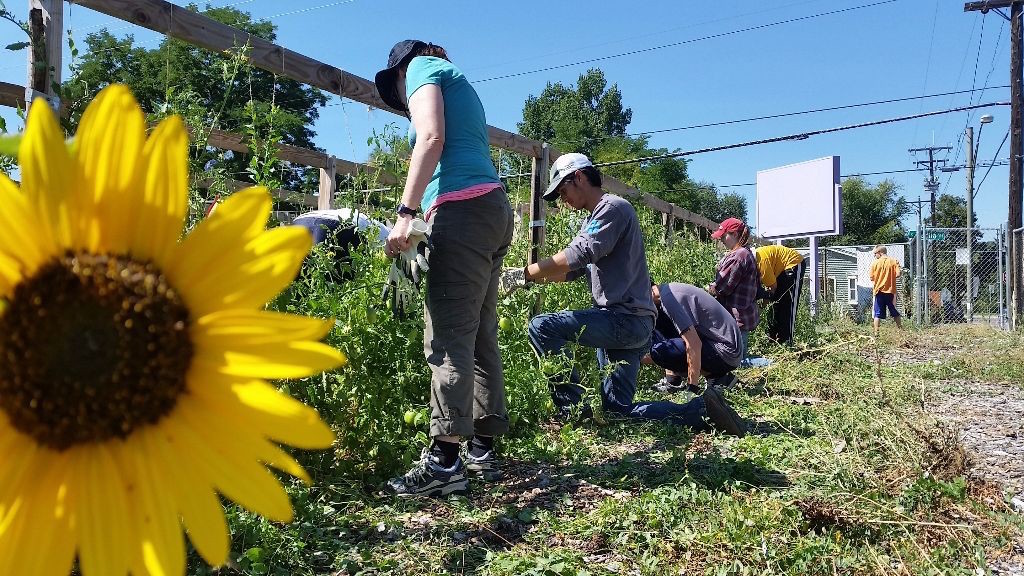
Here are some organizations to consider if you want to take an even more active role in making Denver a sustainable place to live:
The Alliance Center Regenerative Recovery Coalition – a think-tank to tackle climate change, economy, workforce development, food systems, agriculture, infrastructure, natural resource management and more in the wake of COVID-19
Re:Vision – working with people in economically marginalized neighborhoods, Re:Vision and its volunteers create community food systems through urban farming, grocery programs and co-ops
The Park People – a private non profit that works with communities in Denver to plant trees and improve parks
Denver Streets Partnership – a coalition of organizations fighting for people-friendly streets (walking, rolling, biking, multi-modal transit)
Groundwork Denver – partners with low-income communities to help improve the conditions, from weatherization of homes to planting trees and helping with gardens.
Denver Urban Gardens – a private non profit with community gardens and composting programs
Earth Force Inc – an international educational consulting organization based in Denver that helps teach young people how to become environmental citizens
Colorado Sierra Club – a national and well-known environmental organization with chapters in all 50 states working toward energy policy, climate change policy, sustainable food systems and more.
The Climate Reality Project – a national organization founded by former US Vice President Al Gore that focuses on training activists through the Climate Reality Leadership Corps, raising awareness and mobilizing people to push for climate action.





